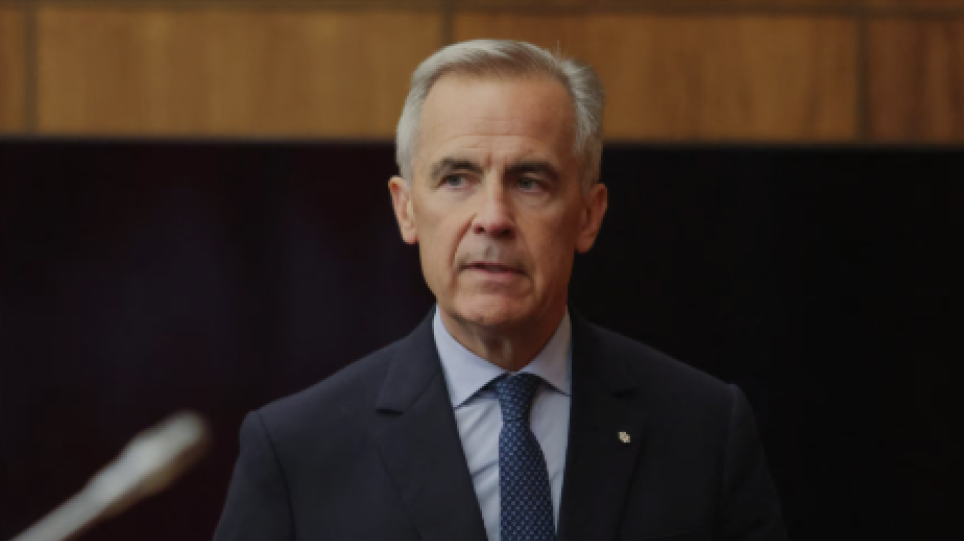Cross-border commerce drives Türkiye-Azerbaijan-Georgia discussions
Expanding cross-border commerce and strengthening regional trade corridors topped the agenda in Baku on Tuesday (24 February), as senior lawmakers fro...

On Thursday, the U.S. President Trump raised tariffs on Canadian imports from 25% to 35%, citing drug smuggling concerns, a claim dismissed by Canadian Prime Minister Mark Carney, who vowed to protect jobs during rising trade tensions.
The White House linked this decision partly to Canada’s alleged failure to stop fentanyl smuggling, though Canadian Prime Minister Mark Carney dismissed the claim, stating, “Canada accounts for just 1% of U.S. fentanyl imports and is working intensively to reduce these volumes.”
Carney expressed disappointment with the tariff hike, writing on X that “while we will continue to negotiate with the United States on our trading relationship, the Canadian government is laser focused on what we can control: building Canada strong.”
He warned that sectors such as lumber, steel, aluminum, and automobiles would be hardest hit but pledged to “protect Canadian jobs, buy Canadian goods, invest in industrial competitiveness, and diversify export markets.”
Ontario Premier Doug Ford, whose province generates about 40% of Canada’s GDP, demanded a strong countermeasure, calling for a 50% tariff on U.S. steel and aluminum imports.
Ford urged, “Canada shouldn’t settle for anything less than the right deal. Now is not the time to roll over. We need to stand our ground.”
Despite the escalation, Trump told that he remains open to talks with Canada and may speak with Carney soon. The U.S. also granted Mexico a 90-day extension to negotiate a deal and avoid similar tariff hikes.
Economists note Canada’s economy has shown resilience amid the tariffs and is expected to avoid recession.
Canadian exports to the U.S. have dropped slightly, with many companies diversifying their markets and increasing USMCA compliance, which currently exempts about 90% of Canadian exports.
Tensions have also been fueled by Canada’s recognition of Palestinian statehood, a move Trump criticized as making a future trade deal 'very hard' to achieve.
Italy said a fond farewell to the Winter Olympics on Sunday with an open-air ceremony in the ancient Verona Arena that celebrated art and sporting achievement at a Games lauded as a model for how to stage such events.
The United States and Iran will hold a new round of nuclear negotiations in Geneva on Thursday as part of renewed diplomatic efforts to reach a potential agreement, Oman’s Foreign Minister Badr Albusaidi announced on Sunday.
Further Iran-U.S. nuclear talks are scheduled in Geneva on Thursday (26 February) as diplomacy resumes over Tehran’s nuclear programme following earlier mediation efforts. But will the talks move Iran-U.S. negotiations closer to a deal, and what should be expected from the meeting?
Mexican authorities said on Sunday that Nemesio Oseguera Cervantes, known as El Mencho and head of the Jalisco New Generation Cartel (CJNG), was killed during a military operation in the western state of Jalisco.
The European Parliament’s trade chief has urged a temporary suspension of the EU–U.S. trade agreement approval, citing “tariff chaos” following President Donald Trump’s new 15% tariffs and a U.S. Supreme Court ruling invalidating his previous global tariff programme.
Ukraine signalled its readiness for fast-track European Union membership in Kyiv on Tuesday (24 February), as European leaders pledged continued political and financial backing and insisted Russia would gain nothing at the negotiating table.
U.S. military forces have seized a sanctioned oil tanker in the Indian Ocean after tracking it from Caribbean waters, the Pentagon said on Tuesday (24 February), adding that it was the third such operation.
Four years into Russia’s invasion of Ukraine, the war can be measured not only in lives and territory, but in money. In Part One, the war’s cost was measured in casualties and kilometres. In Part Two, it is measured in billions of dollars.
President Volodymyr Zelenskyy on Tuesday (24 February) urged Ukraine’s allies to maintain their backing as the war with Russia entered its fourth year, with divisions among European partners overshadowing anniversary commemorations.
Seven people were killed after gunmen ambushed a police patrol in Kohat, a district in Pakistan’s north-west near the Afghan border, on Tuesday, in an attack that comes amid rising militant violence and heightened tensions between Pakistan and Afghanistan.
You can download the AnewZ application from Play Store and the App Store.

What is your opinion on this topic?
Leave the first comment